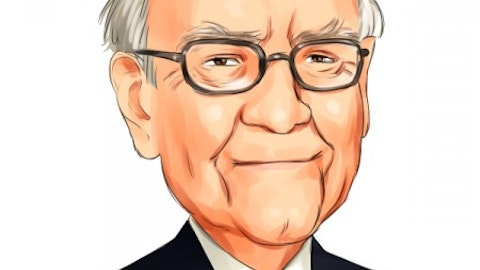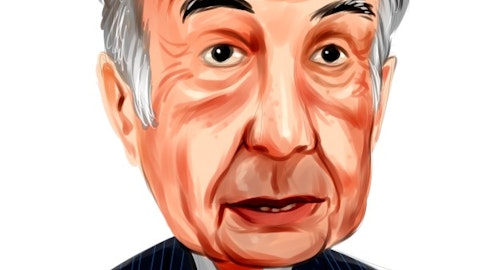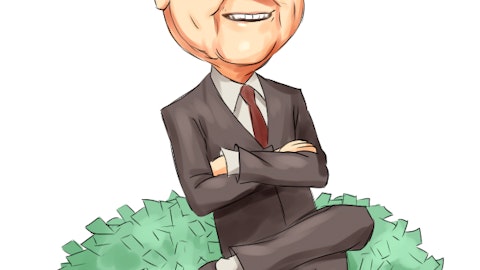The Future: Charity & Legacy
As a billionaire more than 60 times over, Warren Buffett has a lot of money to leave to his heirs or give to charity.
It makes sense that Buffett has put a great deal of thought into charity and his legacy.
First, Buffett makes the point of saving jobs in his company as long as they are economically viable. The quote below shows this interesting viewpoint:
“I won’t close down a business of subnormal profitability merely to add a fraction of a point to our corporate returns. I also feel it inappropriate for even an exceptionally profitable company to fund an operation once it appears to have unending losses in prospect. Adam Smith would disagree with my first proposition and Karl Marx would disagree with my second; the middle ground is the only position that leaves me comfortable.”
Warren Buffett would rather keep people employed than close a profitable (but underperforming) operation. While he won’t close an operation down that is barely profitable, Buffett will very likely not add additional funds to it either (as was the case with Berkshire’s textile operations).
Some very wealthy people have a sense of guilt about their wealth. Warren Buffett does not share this sense of guilt.
“I don’t have a problem with guilt about money. The way I see it is that my money represents an enormous number of claim checks on society. It’s like I have these little pieces of paper that I can turn into consumption. If I wanted to, I could hire 10,000 people to do nothing but paint my picture every day for the rest of my life. And the GDP would go up. But the utility of the product would be zilch, and I would be keeping those 10,000 people from doing AIDS research, or teaching, or nursing. I don’t do that though. I don’t use very many of those claim checks. There’s nothing material I want very much. And I’m going to give virtually all of those claim checks to charity when my wife and I die.”
Buffett does not believe the corporation should give to the CEO’s pet causes. Charity is personal and should be handled personally. Every shareholder has a different idea of how to donate to charity – we all have different causes that are important to us.
“If your employees, including your CEO, wish to give to their alma maters or other institutions to which they feel a personal attachment, we believe they should use their own money, not yours.”
Buffett is going to donate the vast majority of his wealth to charity. He is going to leave his children something, however.
“I believe in giving my kids enough so they can do anything, but not so much that they can do nothing.”
What the super-rich leave their children is a delicate topic that is very large. Buffett hits on the balancing act between giving children too much money so that they lose motivation, while at the same time being able to finance their ambitions.
After covering Buffett’s take on legacy and charity, we will take a look at his view on studying history and the power (or lack thereof) of forecasting.
History & Forecasting
The financial industry produces a great deal of forecasts. Economists and financial analysts make a plethora of guesses about company growth rates, country growth rates, margins, and much more.
Warren Buffett does not believe these forecasts are particularly valuable.
“We’ve long felt that the only value of stock forecasters is to make fortune tellers look good. Even now, Charlie and I continue to believe that short-term market forecasts are poison and should be kept locked up in a safe place, away from children and also from grown-ups who behave in the market like children.”
Instead of guessing at future growth rates, Buffett looks for great businesses that are trading at fair or better prices now.
“In the 54 years (Charlie Munger and I) have worked together, we have never forgone an attractive purchase because of the macro or political environment, or the views of other people. In fact, these subjects never come up when we make decisions.”
Forecasts do have some value, however. They tell you what the forecaster is thinking.
“Forecasts may tell you a great deal about the forecaster; they tell you nothing about the future.”
Investing success comes from a mix of understanding history and understanding the current competitive position of businesses. Wise investors learn from their own past mistakes – and those of others.
“The best thing is to learn from other guy’s mistakes. [General George S.] Patton used to say, “It’s an honor to die for your country; make sure the other guy gets the honor.” There are a lot of mistakes that I’ve repeated. The biggest one, the biggest category over time, is being reluctant to pay up a little for a business that I knew was really outstanding.”
The history of a business will tell you more about that business than guesses about the future (forecasts).
“In the business world, the rearview mirror is always clearer than the windshield.”
Unfortunately few investors (and people in general) learn from their own mistakes or mistakes made throughout history.
“What we learn from history is that people don’t learn from history.”
A detailed analysis of a business’ history is not all you need for successful investing. You must also understand valuation and the current competitive advantage of a business. You can put too great an emphasis on history.
“If past history was all that is needed to play the game of money, the richest people would be librarians.”
This is especially true of highly specific (not broad-based) quantitative models that rely on a great many assumptions to work. Investing should not be overly complicated. The more assumptions you make, the more likely you are to be wrong.
“Investors should be skeptical of history-based models. Constructed by a nerdy-sounding priesthood using esoteric terms such as beta, gamma, sigma and the like, these models tend to look impressive. Too often, though, investors forget to examine the assumptions behind the models. Beware of geeks bearing formulas.”
The realization that few people learn from history is best exemplified by investor ‘irrational exuberance’ during the height of bull markets and investing manias.




